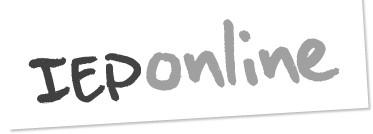Inclusive schools and celebrating success – transcript
[On the screen]
The IEP Process: Inclusive schools and celebrating success
Anne and Rita talk about what it means to be an inclusive school, the importance of leadership and celebrating success.
[Quote]
"An inclusive school is where your child is in the classroom, just part of the classroom, learning beside the other children, doing the same work but maybe needing a little support around that, friends with kids, doing things with them."
--Anne Wilkinson, CEO Parent to Parent NZ
Anne Wilkinson – Parent to Parent CEO and Support Parent, Mum to Michelle:
Inclusive school is where people are accepted for who they are and be able to get around the school and be in places where other people their age are.And involved and part of playing sport, that’s what they want to do. Perhaps being in the concert or being in a team and taking responsibilities. For me that’s about inclusion. It’s really about being really accepted for who you are.
The school actually also acknowledging that you might need a little bit of help or support in some areas, and being there for you around that.
Inclusive schools are also, they’re totally diverse. I mean people with disabilities are very diverse, but human beings are very very diverse, much more so. And I think it’s about that as well. Total diversity around culture, religion, and everything else. I think that’s bringing everyone together and respecting each other. I think inclusion is about respect for difference.
The principal, they actually need to lead it. I mean, there’s also the Board of Trustees as well, but often the principal can influence the Board of Trustees.
Our children are children first, and as far as we’re concerned, they’re just our kids. And so, that’s why I think it can be really hard when we go into the meeting and we’re hearing all these things about them and about their condition, that can be emotional. But you know, they are our kids first, and what we want is them just to have a life like their brothers and sisters and to achieve whatever it is that’s right for them.
Being able to talk to people about all the good things they can do, what they’re really good at.
Often they’re really good at some things that our other kids aren’t so good at, even if they do have some difficulties in other areas, and to be able to share with that is so important. And that’s why one of the things why I like the way IEPs are kind of set up, in that it is from those strengths that we really look at how can we develop those, and how can that strength actually help this area here that needs a bit of help.
Some of the things that we saw as a real success for our daughter were things like having friends, and I guess really being part of the group within the classroom.
And one of the ways we went about that was we started doing a little bit of coaching, netball, you know, we got a netball goal for her, and so we got her learning how to shoot goals. And then she went into the netball team, and she was actually a really good goal-shooter after a little bit of coaching.
And so she then became a really valued member of the team.
And the really nice thing that happened from that was all of the netball girls, or a few of them, at lunchtime would get together under the netball goal and shoot goals. And so she was part of the group.
Prior to that, she used to just wander around by herself, or sit on her own all through it, all through those times.
And so for us, those sort of social goals are really important. And particularly having friends, people in her life who weren’t just her family or were just there because they were being nice, but there because they wanted to be there.
Some of the other things that we managed to achieve at primary school was she was given ... she did see herself as a member of the class. It was really really nice.
She would put up her hand to do patrol, look after the pedestrian crossing. And so she was accepted, and it was very simple because there’s always a teacher involved, and she just wasn’t the lead patrol person.
But she did that role very very well, and she was always there on time, and took responsibility for having the right gear, and made sure the other person had the right gear. So she had lots of strengths in other things and organisation that other kids might not have had at her age, and she did the job very very well. And that also got her connecting with other people on an equal basis. So, those are some of the really nice things that happened that we felt were real successes. The things that were going to take her into adulthood.
Rita:
I know when the school moved to having a classroom on the site of an intermediate, things changed because she would have time outside where the children from the intermediate would come and talk to her. And she’d be in her walking frame, her pacer, they call it, and the children would come up to her, and she absolutely loved it. And they thought it was great because she was quite different, so they wanted to check her out and talk to her.
So, actually having that mentioned in the IEP was great because it was planned time for her to go outside at lunchtime in her pacer, which can take quite some time to set up and put her in there. So she could have that social contact, and so the other children could get to know who she was.

